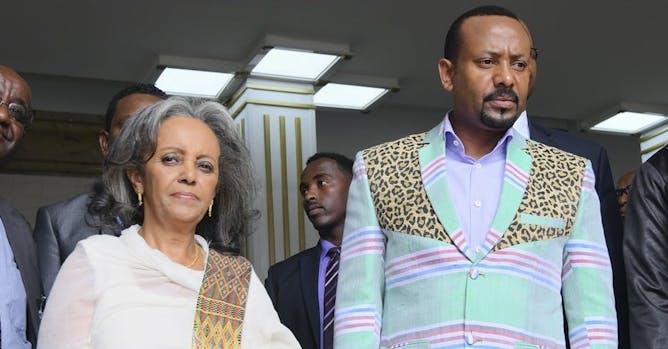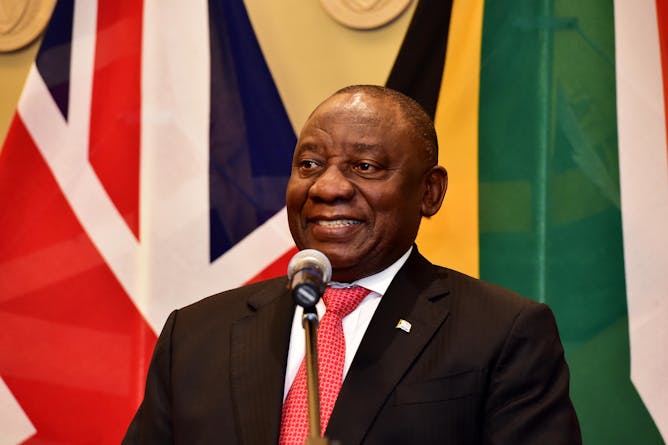|
When he took over as Prime Minister earlier this year, Ethiopian Prime Minister Abiy Ahmed made a pledge that he would ensure women were more involved in running the country. He’s made good on that promise, appointing women to half of the cabinet as well as to top posts such as the presidency and chief justice. Yohannes Gedamu explains the significance.
The jury is still out on whether South Africa’s president Cyril Ramaphosa can fix the country’s economy and end rampant corruption. Roger Southall warns that South Africa could well experience even higher levels of popular protest and class tensions in the coming years, opening the door to a leader who would exploit these grievances.
|

Ethiopian President Sahle-Work Zewde (left) and Prime Minister Abiy Ahmed.
EPA-EFE/STR
Yohannes Gedamu, Georgia Gwinnett College
Women in Ethiopia are shaking the foundations of the country's political framework by taking on powerful positions.
|

South Africa’s President Cyril Ramaphosa faces the daunting task of fighting corruption and winning votes for his party.
GCIS
Roger Southall, University of the Witwatersrand
Polls indicate that South Africans are unlikely to totally abandon the African National Congress.
|
Business + Economy
|
-
Irmak Ertör, Autonomous University of Barcelona
Aquaculture is endangering the marine environment, threatening the livelihood of small-scale fishers and food security.
|
|
Environment + Energy
|
-
Brett M Bennett, University of Johannesburg
The colonial history of botanical gardens encouraged pride in indigenous flora and culture.
|
|
From our international editions
|
-
Ewan McGaughey, King's College London
What case law tells us about the validity of votes when things weren't all they seemed.
-
Simon Cotton, University of Birmingham
A chemist explains what it is, how it's made – and its devastating consequences.
-
Mustafa Ozbilgin, Brunel University London
The success of the women's movement shows the importance of international solidarity.
|
|